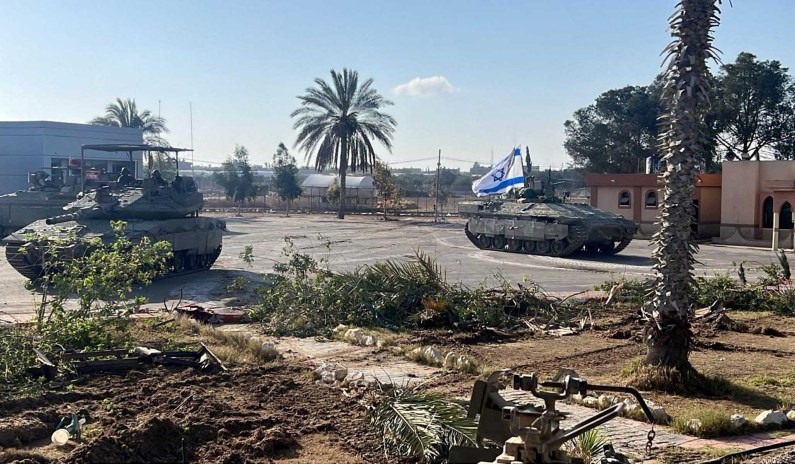The Israeli military took control of the Rafah border crossing between Gaza and Egypt following targeted strikes against Hamas in eastern Rafah. This move aimed to disrupt alleged terrorist activities at the crossing, effectively closing off a significant entry point for humanitarian aid into Gaza. However, this action is distinct from a larger invasion of Rafah, which Prime Minister Benjamin Netanyahu had previously indicated.
The offensive came after Hamas unexpectedly accepted a cease-fire proposal brokered by Egypt and Qatar. Israel, while surprised by this development, deemed the proposal insufficient and proceeded with a limited military operation in southern Gaza. Talks on the proposed truce are set to resume in Cairo, with Israel insisting on amendments to meet its requirements for a lasting peace agreement.
Tensions escalated when Hamas launched rockets toward the Israeli border from Rafah, resulting in casualties among Israeli soldiers. In response, Israel closed the Kerem Shalom border crossing for humanitarian aid but committed to reopening it following discussions with President Biden. Before the offensive, the IDF ordered around 100,000 Palestinians in Rafah to evacuate to designated humanitarian zones, anticipating military action.

Egypt condemned Israel’s actions as a dangerous escalation that could jeopardize ongoing negotiations. Similarly, Hamas accused Israel of undermining cease-fire talks through its incursion. The United Nations expressed concern over the humanitarian impact of the Rafah crossing’s closure, warning of exacerbating the already dire situation in Gaza, where access to aid is critical amid fuel shortages and mass displacement.
With tensions remaining high and negotiations ongoing, the situation at the Rafah crossing underscores the complex dynamics of the Israel-Palestine conflict. The actions taken by both sides have immediate humanitarian consequences and could influence the prospects for a lasting peace agreement. As international pressure mounts for de-escalation and renewed dialogue, the fate of Gaza’s population hangs in the balance amidst the ongoing conflict.
